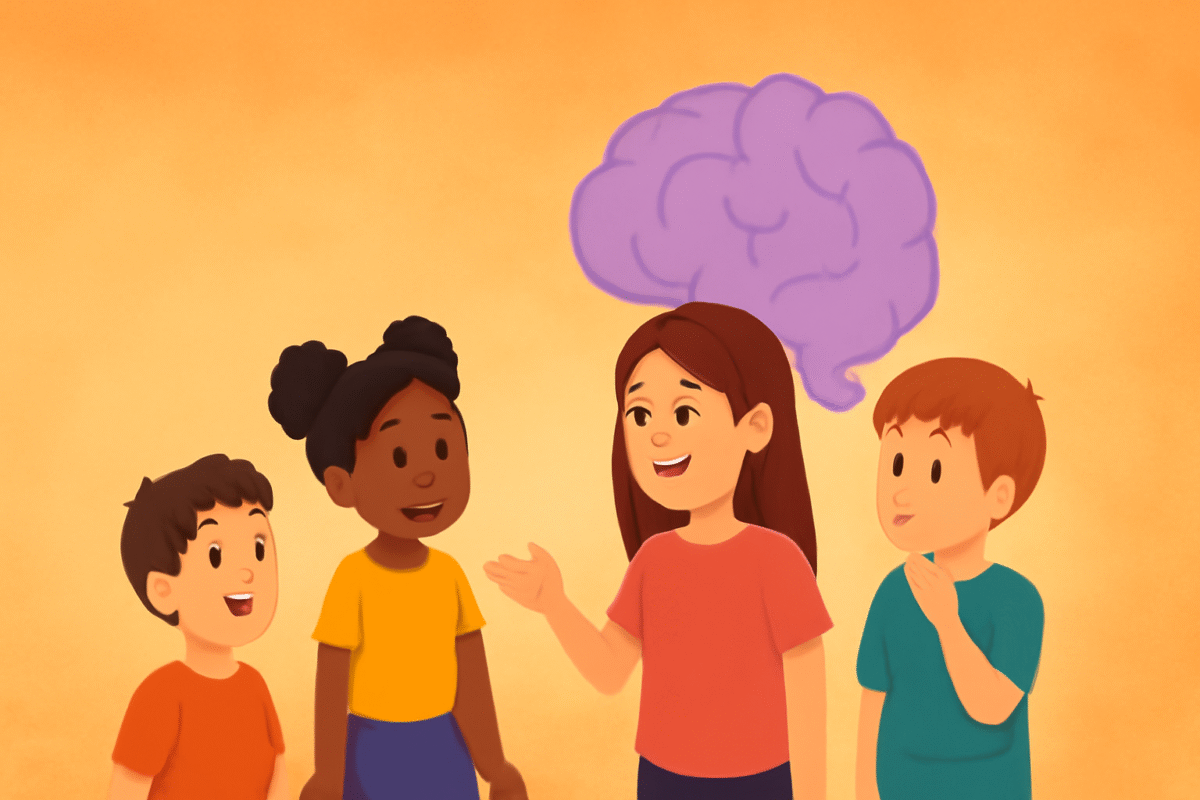Raising children is a delicate responsibility that requires not only love or strictness but also understanding, wisdom, and patience. Having a basic grasp of children’s psychology helps parents and guardians set realistic expectations that match their child’s age, mental level, and experience. When children repeat things, act mischievously, or show immaturity, it does not mean they are rude or disobedient; rather, they are trying to learn naturally according to their age.
To effectively guide and support young minds, it is important to have a basic understanding of psychology children how children think, feel, and behave at different stages of their development. Recognizing these psychological patterns helps parents and caregivers respond appropriately to children’s needs, fostering healthy growth both emotionally and mentally.
Children’s Psychology and Upbringing
A child’s mind is undeveloped. They lack full decision-making ability, experience, and they only learn what they see and hear in their environment. That is why their behavior and reactions should be expected according to their age.
If a child says something immature or behaves mischievously in childhood, parents should explain things not with harshness but with gentleness and wisdom. It is important to remember that great saints and scholars were just like ordinary children during their childhood. They too made innocent mistakes and were mischievous like other children.
The learned loved their children and corrected them from time to time. With this balance, children learn love, respect, and correction.
If parents only show love and never correct mistakes, or scold at every turn and withdraw, both approaches are harmful. A child must be stopped from making mistakes, but not harshly—rather with gentleness, wisdom, and understanding.
Impact of Environment and Friendship
Children imitate what they see at home—it shapes their play, behavior, and lifestyle. Understanding children’s psychology shows us that if they see love, manners, and religion at home, it becomes a part of their nature. Similarly, children learn a lot from their friends. That is why parents must pay attention to who their children play with and befriend. You can also read about How People become great.
Hazrat Maulana Yahya Kandhlawi (may Allah have mercy on him) said:
“If a child is dull but has a good friend, someday his boat will reach the shore; but if the child is intelligent and the friend is bad, someday his boat will sink in the middle of the river.”
With this concern, he raised his son Maulana Muhammad Zakariya (may Allah have mercy on him), who later served religion worldwide and became known as “Sheikh-ul-Hadith.”

Nurture Children with Wisdom and Love
Sometimes, understanding children goes beyond their words and actions; exploring the psychology of children’s drawings can reveal hidden feelings and thoughts they might find difficult to express verbally. These drawings offer valuable clues about a child’s emotional state, fears, and desires. By paying attention to such creative expressions alongside gentle guidance and support, parents can better connect with their children’s inner world and provide the right kind of care and understanding.
Remember! Children do not only learn what they are taught sitting down, but mostly they learn what they see and feel. Therefore, we must present ourselves as a role model before them that serves as a practical lesson.
Conclusion
Understanding a child’s behavior often requires more than just observation; sometimes, a children’s psychological evaluation can provide deeper insights into their emotional and mental development. This evaluation helps parents and guardians identify the child’s strengths and areas where they may need additional support. When combined with love, patience, and wise guidance, the findings from such evaluations can be used to tailor the upbringing process to meet each child’s unique needs, ensuring they grow with confidence and emotional balance.
Thought-Provoking Questions
Is the environment at my home such that the child is learning goodness, manners, and religion?
The home environment is the foundation of children’s upbringing, so this question is very important.
Do I keep an eye on my child’s friends and their habits?
This reminds us that children learn from their companions what parents may fail to teach in years.
Prayer
O Allah! Grant us the ability to raise our children with love, knowledge, manners, and religion. Instill in their hearts goodness, truthfulness, and love for what is good. Bestow upon us wisdom, patience, and understanding so that we can guide them rightly and shape their present and future. Ameen, Ya Rabb al-Alamin.

